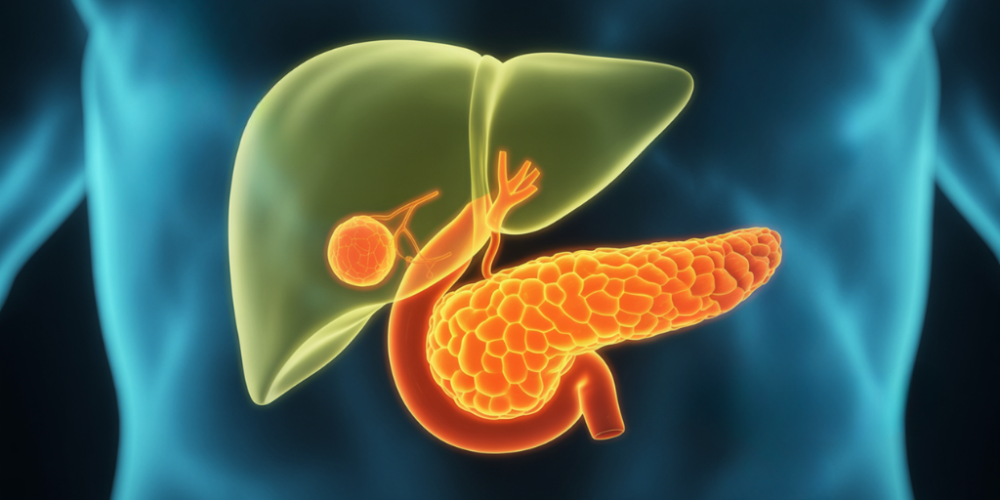
Have you ever stopped to really listen to your body? Not just the grumble in your stomach when you’re hungry, but the subtle signals it sends all day long. One of the most important, yet often overlooked, of these signals is the steady rhythm of your own heart. That beat you can feel in your wrist or neck is more than just a sign you’re alive; it’s a vital piece of data about your overall health. Taking a moment to measure it can reveal a surprising amount about what’s happening inside your body.
Your resting heart rate—the number of times your heart beats per minute (bpm) when you’re at complete rest—is a powerful health metric. For most adults, a normal resting heart rate falls between 60 and 100 bpm. However, many health experts, myself included, suggest that an ideal rate is closer to between 60 and 85 bpm. When your heart rate consistently trends higher (a condition called tachycardia) or lower (bradycardia) than your personal normal, it could be your body’s way of waving a red flag. It’s not about a single reading, but the overall trend. Understanding the potential causes behind these fluctuations is the first step toward taking control of your health. So, let’s dive into some of the surprising reasons your heart rate might be out of whack.
Key Takeaways
- Your Heart Rate is a Vital Sign: A resting heart rate between 60 and 100 bpm is considered normal, but trends and changes are more important than a single reading.
- Stress is a Major Factor: The ‘fight or flight’ response, triggered by stress, floods your body with hormones that speed up your heart.
- Blood Sugar Matters: Diabetes and insulin resistance are strongly linked to a higher resting heart rate, as they put extra strain on your cardiovascular system.
- Your Heart Has an Electrical System: Issues with the heart’s natural pacemaker can cause your heart rate to be too slow or irregular.
- Activity Level is Crucial: Your heart is a muscle. A lack of exercise makes it work harder, while regular physical activity strengthens it, leading to a lower, more efficient resting heart rate.
- Substances Have a Direct Impact: Caffeine, nicotine, alcohol, and even some prescription and over-the-counter medications can significantly alter your heart rate.
- Imbalances Can Cause Chaos: Dehydration, electrolyte imbalances, and thyroid problems can all disrupt the delicate systems that regulate your heartbeat.
7. You Are Chronically Stressed

In our fast-paced world, stress has become a constant companion for many. When you perceive a threat—whether it’s a looming work deadline or a traffic jam—your body kicks into its ancient ‘fight or flight’ mode. This triggers the release of stress hormones like adrenaline and cortisol, which prepare you for action. Your pupils dilate, your senses sharpen, and, crucially, your heart begins to pound faster to pump more oxygen-rich blood to your muscles. While this is a useful survival mechanism for short-term dangers, the problem arises when stress becomes chronic.
If you’re living in a constant state of high alert, your heart rarely gets a break. This sustained high heart rate puts extra wear and tear on your entire cardiovascular system, increasing your long-term risk for high blood pressure, heart attack, and stroke. It’s essential to find healthy ways to manage your stress. This doesn’t mean eliminating stress entirely, but rather learning to control your reaction to it. Practices like deep belly breathing, mindfulness meditation, spending time in nature, or even light exercise can help activate your body’s relaxation response, calming your nervous system and allowing your heart rate to return to a healthy, restful state.
6. You Have Unstable Blood Sugar or Diabetes

The connection between blood sugar and heart rate is a two-way street that doctors are still working to fully understand. However, the link is undeniable. A consistently high resting heart rate is often seen in individuals with pre-diabetes and type 2 diabetes. When you have insulin resistance, your body’s cells don’t respond properly to insulin, leading to higher levels of sugar in your blood. This excess sugar can damage blood vessels and nerves over time, including the nerves that help regulate your heart.
Furthermore, conditions that often accompany diabetes, such as obesity and high blood pressure, place an enormous strain on the heart. Your heart has to work much harder to pump blood through a system that may be compromised by narrowed or stiff arteries. This extra effort translates directly into a higher number of beats per minute. Studies have consistently shown that for patients with diabetes, a higher heart rate is linked to worse health outcomes. Managing your blood sugar through diet, exercise, and medication is not just about controlling diabetes; it’s one of the most critical things you can do for your long-term heart health.
5. There’s a Short in Your Heart’s Electrical System

Think of your heart as having its own internal, biological pacemaker. This is called the conduction system, a network of specialized cells that send electrical signals across the heart muscle, telling it when to contract and pump blood. It all starts in the sinoatrial (SA) node, which sets the pace for your heartbeat. If there’s a problem or a ‘short’ anywhere in this intricate system, it can lead to an abnormal heart rhythm, known as an arrhythmia.
A slow heart rate, or bradycardia, can be a sign that these electrical signals are being blocked or are not firing as they should. This can cause symptoms like dizziness, lightheadedness, fatigue, and even fainting, because your brain and body aren’t getting enough oxygenated blood. Your doctor can perform a simple, non-invasive test called an electrocardiogram (EKG or ECG) to map out your heart’s electrical activity and pinpoint any malfunctions. In some cases, an implantable pacemaker may be needed to correct the issue and ensure your heart beats at a proper, steady rate.
4. You’re Not Getting Enough Exercise

Your heart is a muscle, and just like any other muscle in your body, it abides by the ‘use it or lose it’ principle. If you lead a sedentary lifestyle, your heart muscle becomes deconditioned and less efficient. This means it has to beat more frequently to accomplish the same task—circulating blood throughout your body—as a heart that is strong and well-conditioned. This is why inactivity and obesity are major contributors to an elevated resting heart rate.
On the flip side, regular aerobic exercise is one of the best things you can do to strengthen your heart. When you exercise, you challenge your heart to pump more blood, more efficiently. Over time, this training effect makes the heart muscle stronger. A stronger heart can pump a greater volume of blood with each beat. As a result, it doesn’t need to beat as often when you’re at rest. This is why elite athletes often have resting heart rates as low as 40 bpm. Their hearts are so efficient they can meet the body’s needs with far fewer beats. You don’t have to be a professional athlete to see the benefits; even incorporating 30 minutes of brisk walking into your daily routine can lead to a significant improvement in your resting heart rate over time.
3. Drugs and Other Substances Are Affecting Your Numbers

Many common substances, including both prescription medications and everyday items, can have a direct and powerful effect on your heart rate. It’s crucial to be aware of what you’re putting into your body.
- Prescription & OTC Meds: Certain medications are designed to lower your heart rate, such as beta-blockers and calcium channel blockers, which are often prescribed for high blood pressure or heart conditions. Conversely, other medications can speed it up. Decongestants containing pseudoephedrine, asthma inhalers (like albuterol), and some medications for ADHD and depression can all cause an increase in heart rate. Always talk to your doctor about the potential side effects of any new medication.
- Caffeine: This is one of the most common culprits. Caffeine is a stimulant that can make your heart race, especially if you’re sensitive to it. It’s found in coffee, tea, soda, energy drinks, and even some headache medications and chocolate. If you notice your heart fluttering after your morning coffee, it might be a sign to cut back.
- Nicotine and Alcohol: Nicotine, whether from smoking or vaping, is a potent stimulant that immediately raises your heart rate and blood pressure. Alcohol can also cause arrhythmias and an elevated heart rate, a phenomenon sometimes called ‘holiday heart syndrome’ because it often occurs after a period of heavy drinking.
2. You’re Dehydrated or Your Electrolytes Are Off

Your body is a finely tuned chemical machine, and that includes the chemistry that makes your heart beat. Your heart muscle relies on a precise balance of minerals with an electric charge, known as electrolytes—primarily potassium, magnesium, calcium, and sodium—to conduct the signals for contraction. When you become dehydrated, either from not drinking enough water, excessive sweating, or illness, the concentration of these electrolytes in your blood can be thrown off.
If your levels of key minerals like potassium or magnesium become too low, it can interfere with the heart’s electrical signaling, potentially leading to arrhythmias that may manifest as a rapid or irregular heartbeat. On the other hand, drinking too much water without replacing electrolytes can also dilute them and cause problems. Maintaining proper hydration by drinking water throughout the day and replenishing electrolytes with mineral-rich foods (like leafy greens, nuts, and bananas) or a balanced electrolyte drink after intense exercise is vital for stable heart function.
1. Your Thyroid Isn’t Functioning Properly

The thyroid, a small butterfly-shaped gland in your neck, is your body’s master metabolic regulator. It produces hormones that control the speed of countless processes in your body, including your heart rate. If this gland is not functioning correctly, it can have a direct impact on your ticker.
If your thyroid is underactive (hypothyroidism), it doesn’t produce enough hormones. This slows everything down, often resulting in fatigue, weight gain, and a lower-than-normal resting heart rate (bradycardia). Conversely, if your thyroid is overactive (hyperthyroidism), it pumps out an excess of hormones, putting your body into overdrive. This can cause anxiety, weight loss, and a persistently rapid heart rate (tachycardia), as the excess hormones make the heart muscle more sensitive to adrenaline. Your doctor can easily check your thyroid function with a simple blood test, and treatments are available to restore normal hormone levels.
Conclusion
Your heart rate is a dynamic and responsive indicator of your health. While a single high or low reading is usually not a cause for alarm, a consistent trend outside of your normal range is a signal from your body that deserves attention. As we’ve seen, the cause can range from lifestyle factors like stress and exercise to underlying medical conditions like thyroid issues or diabetes. The key is not to self-diagnose or panic, but to use this information as a tool. Start by tracking your resting heart rate in the morning before you get out of bed. If you notice a persistent change, make an appointment to speak with your doctor. By listening to the rhythm of your heart, you are taking a proactive and powerful step toward a longer, healthier life.

